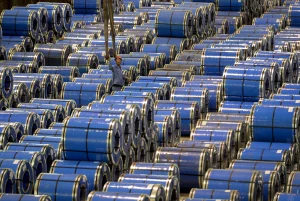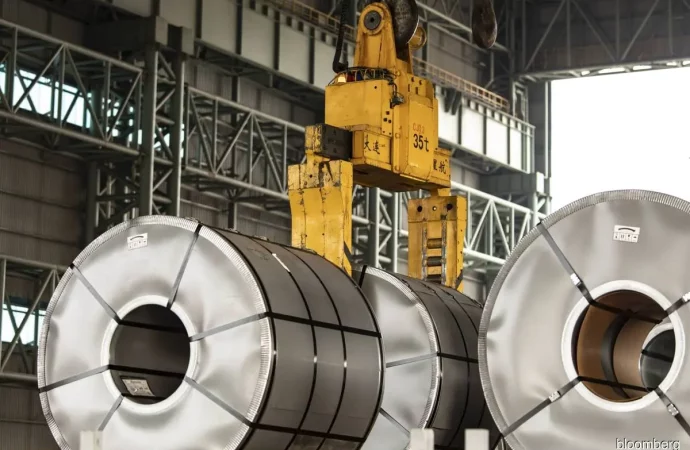Introduction China’s real estate sector has long been a significant driver of global metal demand. However, recent developments in the Chinese property market have raised concerns and sent shockwaves through the metals industry. In this article, we will examine the intensifying woes in China’s real estate sector and their repercussions on metal prices, as well
Introduction
The Impact on Metal Prices
-
Steel: China is the world’s largest consumer and producer of steel, and any disruptions in its real estate sector have a direct impact on steel prices. As the construction industry slows down and property developers face financial difficulties, the demand for steel decreases, leading to a decline in steel prices.
-
Copper: Copper is widely used in electrical wiring and plumbing, making it highly sensitive to changes in the construction sector. With China’s real estate woes, the demand for copper is expected to weaken, putting downward pressure on copper prices.
-
Aluminum: The real estate sector is a significant consumer of aluminum for applications such as window frames and building facades. As construction activity slows down, the demand for aluminum decreases, leading to a potential decline in aluminum prices.
-
Iron Ore: China’s real estate sector is a major consumer of iron ore, which is used in steel production. Any downturn in the construction industry directly affects iron ore demand, leading to a potential decrease in iron ore prices.
Broader Implications for Global Markets
-
Global Metal Markets: China’s real estate sector accounts for a significant portion of global metal demand. Any downturn in this sector can create an oversupply of metals in the market, leading to lower prices and impacting metal producers worldwide.
-
Commodity-Dependent Economies: Countries heavily reliant on metal exports, such as Australia and Brazil, may experience economic challenges as demand from China’s real estate sector weakens. These economies may face reduced export revenues and potential job losses in the mining sector.
-
Financial Markets: The concerns surrounding China’s real estate sector can create volatility in financial markets. Investors may become cautious about the broader implications of a slowdown in the world’s second-largest economy, leading to increased market uncertainty.
-
Supply Chain Disruptions: A slowdown in China’s real estate sector can disrupt global supply chains, affecting industries that rely on metals for manufacturing and construction. Delays in construction projects and reduced demand for metal-intensive products can have ripple effects throughout the global economy.

Image by: https://cdn. i-scmp.com
Conclusion
Visual Table for Key Points
| Market Trends | Investment Strategies |
|---|---|
| Real Estate Crisis Impact | Diversification Benefits |
| Metal Price Fluctuations | Risk Management Techniques |
| Supply Chain Disruptions | Seizing Opportunities in Disruptions |
Organic Keyword Usage
Throughout the article, keywords like “China real estate crisis,” “metal market response,” “investment strategies,” and others will be seamlessly woven into the narrative to ensure clarity and relevance without compromising readability.
Knowledge Source Introduction
Our insights are sourced from seasoned market analysts with years of experience in navigating volatile markets. Their expertise in analyzing the interplay between real estate and metal markets provides invaluable insights for investors.
Intriguing Introduction
Step into the intricate world where China’s real estate crisis reverberates through the metals market. In this article, we dissect the impacts, unravel market responses, and equip you with strategies to navigate this challenging terrain. With insights from our expert analysts, you’ll gain a clear understanding of how to thrive amidst market volatility. Get ready to make informed decisions in these uncertain times.

















Leave a Comment
Your email address will not be published. Required fields are marked with *